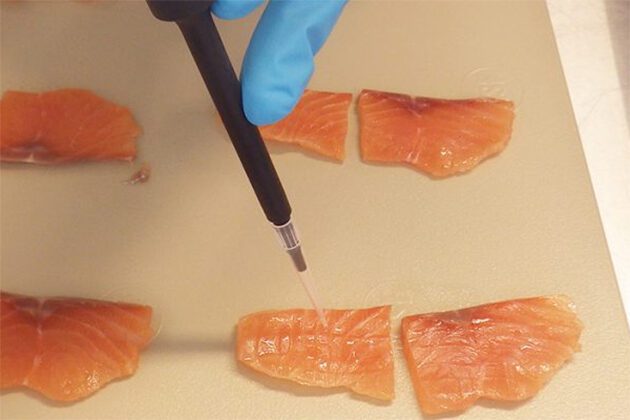SafeFoodCtrl
Antibacterial enzymes against pathogens

The project aims to develop and apply antibacterial enzymes ("enzybiotics") for the control of important pathogens in the food chain.
Start
01. Jan 2021
End
31. Dec 2023
Funded by
EEA (Norway Grants 2014-2021: bilateral research cooperation Poland – Norway administered by The National Centre for Research and Development, Poland)
Cooperation
Prosject coordinator: International Institute of Molecular and Cell Biology in Warszaw, Poland. Partners: Nofima and Veterinærmedisinsk oppdragssenter (VESO).
Project Manager(s):
Controlling pathogens in the food chain
The main focus will be on the development and use of enzymes against the foodborne bacteria Listeria monocytogenes and Staphylococcus aureus as well as against the bacterium Yersinia ruckeri which increases mortality in salmonids and is a major challenge for the aquaculture industry.
Control and elimination of disease-causing bacteria in the food production chain is an increasing challenge. Listeria monocytogenes and Staphylococcus aureus are bacteria causing serious challenges for the Norwegian food industry.
Today’s sanitary practices or processing aids are not sufficient to secure food against these bacteria. There is therefore a need for new, sustainable strategies that can provide effective control and reduce the risk of e.g. developing resistant microbes.
Study bacteria defence systems
The project will utilize the bacteria’s own defence systems and reveal whether these can be used to achieve effective control of important disease-causing bacteria and thus contribute to increased food safety.
The bacteria’s own enzymes with activity against specific building blocks in the cell membrane will form the basis for the development, production and purification of so-called enzybiotics providing specific activity against various bacteria.
These compounds will be tested for:
- Effects against Yersinia ruckeri in salmon farming
- Effects against S. aureus og monocytogenes on food processing surfaces including effects on biofilms
- Effects against monocytogenes in risk foods under relevant conditions, also in combination with other control strategies
Nofima’s activities are specifically aimed at points 2) and 3).
Realistic models
We will establish realistic test models and apply Nofima’s stock collection of bacteria from the food industry.
The activities will provide a basis for further optimization in the development and use of enzybiotics in the food chain. Factors regarding regulations and market potential for the use of such compounds in the food chain are also included in the project.
Research areas
Shelf life and food safety
Topics
Pathogens